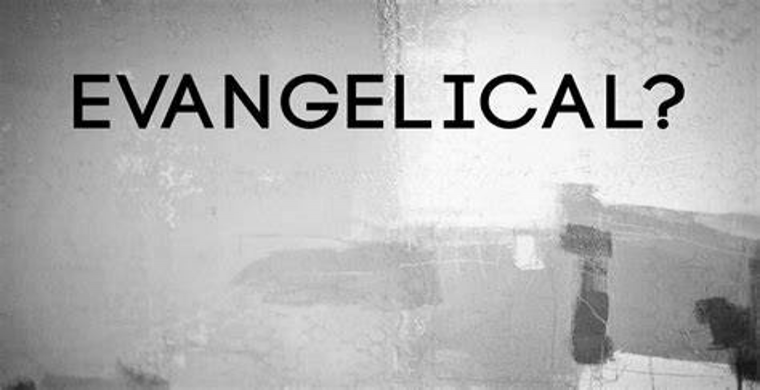What Is An 'Evangelical?'
OPINION
By Richard Ostling
https://religionunplugged.com/news/2021/8/30/what-is-an-evangelical
September 3, 2021
Last month the Public Religion Research Institute reported that its latest polling shows white U.S. Protestants who identify as evangelical are now outnumbered by whites who do not do so. That upended the usual thinking on numbers, and analysts raised doubts about the report. The discussion led Terry Shoemaker of Arizona State University, writing for theconversation.com, to again mull over the perennial question of what "evangelical" means.
In the American context, this term essentially covers the conservative wing of Protestantism, a varied constellation of denominations, independent congregations, parachurch ministries, media outlets and individual personalities that is organizationally scattered but religiously coherent.
There are three ways of defining and counting U.S. evangelicals: by belief, by church affiliation and by self-identification. Shoemaker's analysis, which is open to some nitpicking, started from the belief aspect and a four-point definition by historian David Bebbington in his 1989 work "Evangelicalism in Modern Britain."
In summary, these are his criteria:
1) a high view of the Bible as Christians' ultimate authority
2) emphasis on Jesus Christ's work of salvation on the cross
3) the necessity of conscious personal faith commitments and changed lives, often called the "born-again" experience
4) activism in person-to-person evangelism, missions and moral reform
The problem is, those four points overlap with the definition of "Protestant" or even "Christian."
A 2015 definition from America's National Association of Evangelicals sharpened the line against liberalism by asserting that "only those who trust in Jesus Christ alone as their Savior receive God's free gift of eternal salvation." On point one, many evangelicals would specify belief in the Bible as verbally inspired by God, inerrant on history or interpreted literally when that's what the text signifies.
I would add another criterion: firmly planted doctrinal and moral traditionalism. Today, for example, evangelicals are distinguished from mainline or liberal Protestantism by opposition to same-sex relationships. On doctrine, "Oneness" or "Jesus-only" Pentecostals appear evangelical but do not qualify because they reject Christianity's historic doctrine of the Trinity -- that the one God exists eternally in three persons: Father, Son and Holy Spirit.
Polls by the Southern Baptist Convention's Lifeway Research show that "evangelicals by belief" were 19% of the U.S. adult population in 2016, 20% in 2018 and 18% last year. However, a prior study found that only 59% of those who identified as evangelicals strongly agreed with central tenets.
In addition to belief, evangelicals can be defined through polls that carefully ask respondents what specific congregation they belong to and then check which national body it is part of. This approach is used by the General Social Survey, the Association of Religion Data Archives and the Pew Research Center in its important Religious Landscape Study of 2014. On the basis of affiliation, Pew calculated that 25% of Americans belong to evangelical churches, making this the nation's largest religious bloc.
Pew followed an elaborate table of hundreds of church groups from InfoGroup that classified the Protestant groups as "evangelical," "mainline," or "historically Black."
Take the "Presbyterian/Reformed" listing, for example. Polls about Presbyterians that don't specify which group they are a part of are virtually meaningless. There's one Black denomination and four considered mainline, while evangelicals are scattered across -- we'll skip the full names -- the ARP, BPC, CRCNA, CCCC, CPC, EPC, FRCNA, OPC, PCA, PRC, RCUSA, RPCNA and URC. The Guy would add COEP, NRC and, soon, ARC.
In addition, the evangelicals form a distinctive minority subgroup within pluralistic mainline church bodies. The large United Methodist Church is 34% evangelical, according to Cooperative Election Study data analyzed by political scientist Ryan Burge. Further, CES indicates 18% of Catholics self-identify as evangelical. And evangelical often means simply Protestant in Europe, so for example, the Evangelical Lutheran Church in America, with its European roots, carries an evangelical name but today is correctly categorized as mainline.
Further complexities: Historically Black Protestant denominations contain many evangelicals in belief but are usually considered a totally separate category and generally do not use that label for themselves. This is true to a lesser extent with Hispanic Protestants. Some Protestants who are undoubtedly evangelical self-identify only in terms of their denomination or local congregation. Some evangelicals might not accept the label for themselves because born-again suggests a dramatic conversion moment not experienced by many who grow up in the church -- the late evangelist Billy Graham's Presbyterian wife Ruth, for example.
The most publicized type of definition is the one employed in the poll that began this article. Interviewers simply asked respondents whether or not they identify themselves as evangelical or born-again without any elaborate explanation of those terms. This captures moods and fashions but not necessarily active religious participation.
Politics has become another big problem. White evangelicals have consistently provided Republican and conservative candidates lopsided support, giving the term "evangelical" a political flavor. This became exaggerated after the 2016 nomination of Donald Trump for president. A significant chunk of his supporters identify as evangelicals but have no more church involvement or substance than Trump himself. Some evangelicals by belief or affiliation would like to drop the term due to association with partisan combat.
In the end, perhaps we're left with Supreme Court Justice Potter Stewart's famous guideline on obscenity: "I know it when I see it."
Religion Unplugged believes in a diversity of well-reasoned and well-researched opinions. This piece reflects the views of the author and does not necessarily represent those of Religion Unplugged, its staff and contributors.
Richard Ostling is a former religion reporter for the Associated Press and former correspondent for TIME Magazine. This piece first appeared at Get Religion.














